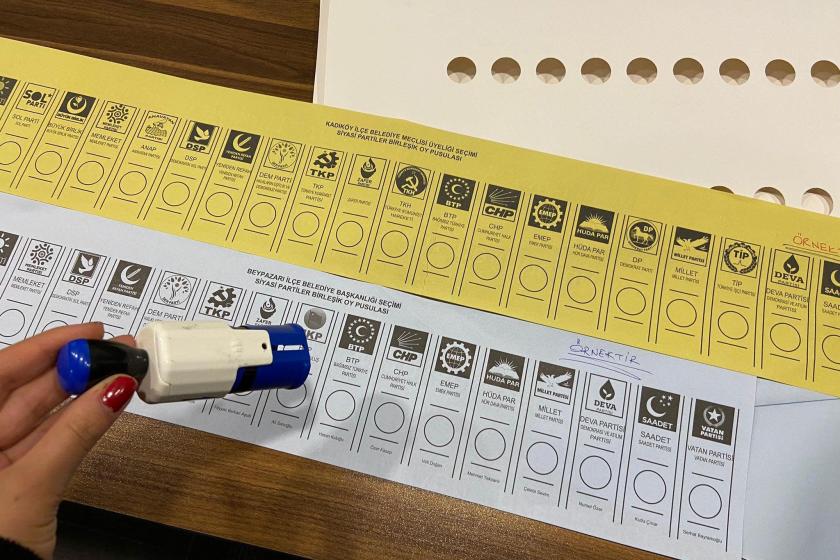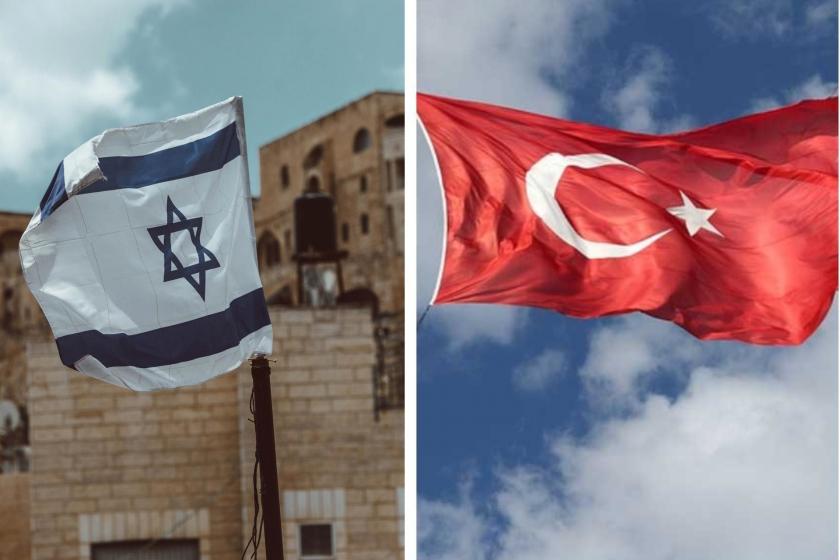Çağrı SARI
İstanbul
Less than one month remains until the 23 June elections, occasioned by the annulment as per the Supreme Election Council (SEC)’s ruling and the AKP’s demands of the Istanbul Metropolitan Mayoral election which the CHP candidate won. Author of the book Electoral Democracy, Prof. Dr. Ülkü Doğanay, stating that the objection procedures against the March elections had not convinced AKP voters, let alone the opposition, said all voters regarded what had happened as a “usurpation of rights.” Doğanay points out that, precisely for this reason, the 23 June elections are considered to be a “make-or-break” election for both the AKP and the opposition bloc. Saying that the “economic crisis” that left its mark on the 31 March process had been compounded by the “election annulment crisis,” Doğanay noted that both factors would be decisive for voters who go to the polls on 23 June.
I spoke to Prof. Dr. Ülkü Doğanay about the way voters’ preferences had changed in the nearly three months between the 31 March and 23 June elections, the kind of road map the candidates have opted to follow and how the CHP’s candidate Ekrem İmamoğlu has withstood the test of the government media’s provocative reporting.
What will be the main determining factor in the 23 June elections? We saw the economic crisis leaving its mark on the 31 March elections, so, for example, what effect will the annulment of the election have on the electorate?
I think the economy will continue to exert a decisive role over electoral behaviour. We aren’t witnessing “regulated-price sale queues” this time, but the effects of the crisis are still highly visible in voters’ daily lives. Apart from this, what happened in the objection process following 31 March and the AKP’s failure to accompany the SEC’s annulment ruling with a convincing reason for the rerunning of the election has led to a significant consolidation in the non-AKP component of the electorate. There appears to be a huge “injustice,” a “usurpation of rights,” not just for the CHP or People’s Alliance voters, but for voters who didn’t vote AKP for one reason or another. Also, once again, but this time more intensely, this election is perceived to be a make-or-break election from both the opposition bloc’s and the AKP’s perspective. Just like the 16 April referendum and to a degree 24 June. On 31 March the opposition front saw the possibility of certain things changing for the first time in a long while and this was an important threshold. The election re-run has in this sense enabled the opposition to combine once more to foster change and, moreover, resulted in its consolidating more firmly with there being - I dislike using this word - blatant “victimhood.” But, on the other hand, AKP voters have also seen that their party can lose and be defeated. At this point, it becomes important how far it is possible to remobilize the voters the AKP calls the “disgruntled” but the true extent of whose total abandonment of the AKP remains uncertain.
To what extent has the ruling party’s pronouncements that “they stole it” affected the electorate? Has this propaganda hit home?
I think this propaganda can hit home with those who maintain their unwavering attachment to the party and leader. Appearing on a Fox TV programme, Binali Yıldırım says, “I was obliged to say they stole it.” There’s a significant difference between being obliged to say this and this being the truth. No realistic explanation at all is forthcoming as to who stole what, but I think underlying it is the party’s misreading of the shortfall in votes for their mayoral candidate while getting votes for the municipal assembly. They still think this was either a technical error or a move the disgruntled made to deliver a lesson, and they believe this. However, there may be a difference between voting AKP out of the traditional attachment voters feel to the party or unwillingness to stamp their vote beneath another party’s emblem and who they really want to win the election and to govern the city. I think this is the crux of the matter the AKP has shrouded in mystery with its enigmatic pronouncement, “We don’t know what happened but certainly something went on.”
THE IMPACT OF WASTE ON PEOPLE’S LIVES WAS SEEN
Has İmamoğlu, in his eighteen-day mayoralty, producing documentation of waste or, for example, the student reduction he made to smart tickets and the reduction made to water persuaded voters?
There had been plenty of talk of corruption before and plenty of documents were bandied about. People know that waste and corruption goes on and a sizeable demographic probably wasn’t concerned by it. But this time İmamoğlu found the opportunity to show people how this waste and corruption impacted on their lives and how it had an outright effect on them. Of course, this was in a very short period. Had he had a bit more time, its effect could have been greater. This is also important from the point of view of people seeing that if the city is governed differently it can directly impact on their lives.
Let us compare the 31 March elections and the 23 June elections in terms of the two candidates. What kind of change is there between the Binali Yıldırım who was preparing for the 31 March elections and the Yıldırım preparing for the 23 June elections?
We can say that in the 31 March elections all the AKP’s candidates including Binali Yıldırım were in the background. The main actor of the campaign was President Erdoğan. Erdoğan was in the forefront both on the billboards and in the rallies and he was courting votes on behalf of the candidates. This is essentially one of the basic strategies Erdoğan has employed in all election campaigns. It makes no difference if it’s a local election or a general election in this regard. In the 2014 local elections, too, he appeared before the voters especially in Istanbul and pursued a strategy in which he was more or less asking them to vote for him. In the Istanbul narrative he constructed in his election speeches he pointed to 1994 in which he was elected mayor as if it were the conquest of Istanbul and one of the turning points in the city’s history. However, this time, this strategy ended in the loss of the big cities. I think this is one of the reasons Binali Yıldırım is coming to the fore as a candidate on 23 June. If the election is lost, it will be Binali Yıldırım who is the loser this time. Then there is a second reason in that Ekrem İmamoğlu is projecting a profile not just as a mayoral candidate but as a leader. İmamoğlu has gained the recognition of very wide sections of society in a very short time. He has won the affection of a wide electoral base. Faced with this candidate, they must have thought that Yıldırım would win the voters’ trust with his experience and past in politics.
“I WAS OBLIGED” INDICATIVE OF THE SITUATION YILDIRIM FINDS HIMSELF IN
Can there be talk of a more confident Yıldırım as opposed to 31 March? He has appeared for the first time on a station like Fox TV that is able to criticize him. He has signalled that he may debate with İmamoğlu on a TV station.
I’m not sure if this can be defined as confidence. He is doing what is called for as an experienced politician. Perhaps his words “I was obliged” I mentioned above better explain the situation he finds himself in. Neither Erdoğan nor his party can risk losing Istanbul. Yıldırım must see himself as “obliged” to win this election.
How does Yıldırım taking a more “leading” position following the decision to rerun the election shape out in voters’ eyes, that is, can a change be involved that will garner new votes?
It has been seen that the discourse of “survival” and the aggressive approach to politics prior to 31 May didn’t produce the desired effect. As a politician, Binali Yıldırım comes across as being softer, more compromising. Prior to 31 May, he was not projecting a profile in synch with an electoral strategy that was about creating enemies and depicting opposition of all kinds as being an issue of survival. I think this time with Yıldırım coming to the fore the AKP will follow a more positive strategy, Bahçeli or no Bahçeli.
İMAMOĞLU SHOULDN’T GIVE AMMUNITION TO THOSE WAITING PRIMED
Well, suppose I asked you to compare the İmamoğlu preparing for the 31 March elections and the İmamoğlu preparing for the 23 June elections. Is the İmamoğlu who won the election coming across to voters as more confident?
İmamoğlu’s recognition has increased immensely with his winning the election and following his eighteen days as mayor. He’s a politician who knows how to express himself well. His composed demeanour and dogged efforts come what may to make himself understood and persuade his interlocutors paints a different image from the politicians we are used to. He keeps his cool despite all the smear campaigns waged against him on social media and in the pro-government media and is capable of giving the called-for answer in the called-for place. As such, I think he projects a “sincere” and “trustworthy” leader profile in the eyes of the electorate. However, of late, weighed down under increasing pressure, he has started giving more ammunition to those waiting primed for him to slip up. He should have foreseen that the words, “Come on, let’s govern together” he spoke in reply to a question on a programme on Habertürk he was appearing on could be assembled out of context and used in this manner in a campaign waged against him. I am referring to his starting his sentence with the words, “Come and let’s all govern together” while answering the question, “Do you have a message for the PKK and FETO concerning the issues the foreign press is discussing with reference to Turkey?” These words are words that could have come at the end of the reply he gave, not the beginning. Another problem emerged in the way he reacted on a visit to small businesses. We see in the original footage that was once more assembled by trolls to suggest that İmamoğlu slapped a small businessman that he touched first the shoulder and then the cheek of a youngster who was determined not to listen to him. He touched his shoulder as a sign of sincerity, but we see when he touched his cheek that he had lost his rag a bit and was delivering a reminder of how very young he was to the small businessman he was talking to. He should never have come into this kind of contact with a voter and certainly not make this kind of gesture reminding him of his youthfulness. There certainly appears to be a lot of pressure on him. Despite this, he doggedly carries on getting his message across and absolutely soft soaping the electorate. This is actually İmamoğlu’s biggest advantage.
How effective is the ruling party’s rhetoric connecting İmamoğlu with FETO and the PKK?
I think smear propaganda of this kind can have an effect far more on those who wish to believe this. On the contrary, these allegations go to such absurd places that they can easily be turned on their heads on social media. Like the issue of slapping the small businessman, they can be turned into a comedy routine and they also lose their credibility. I don’t think they influence the undecided voter.
IF THE OPPOSITION COMBINES IT WILL BE HARD FOR THE AKP TO ATTAIN ITS DESIRED RESULT
There was an impromptu partnership on 31 March to put a dent into the AKP. Now, the SEC’s unlawful annulment has seen many parties not fielding candidates, either. What does this united action speak of with reference to the future?
As I said at the outset, the opposition saw for the first time on 31 March that the AKP could lose an election. Rerunning this election was an incorrect move from the AKP’s perspective – if its thinking isn’t that it will find a way of winning the election come what may. However, on the other hand, I think that in an election in which the opposition sees that it can combine in this way and change things it will be harder this time for the AKP to attain its desired result.
(Translated by Tim Drayton)
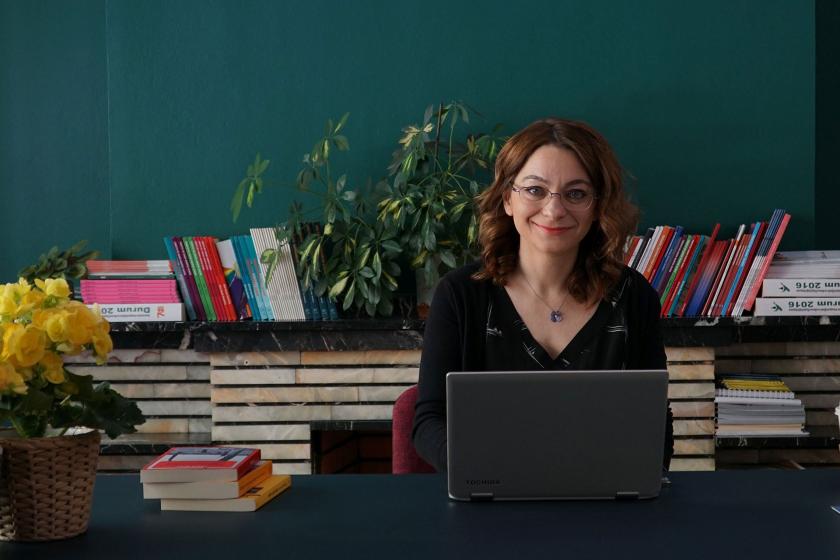









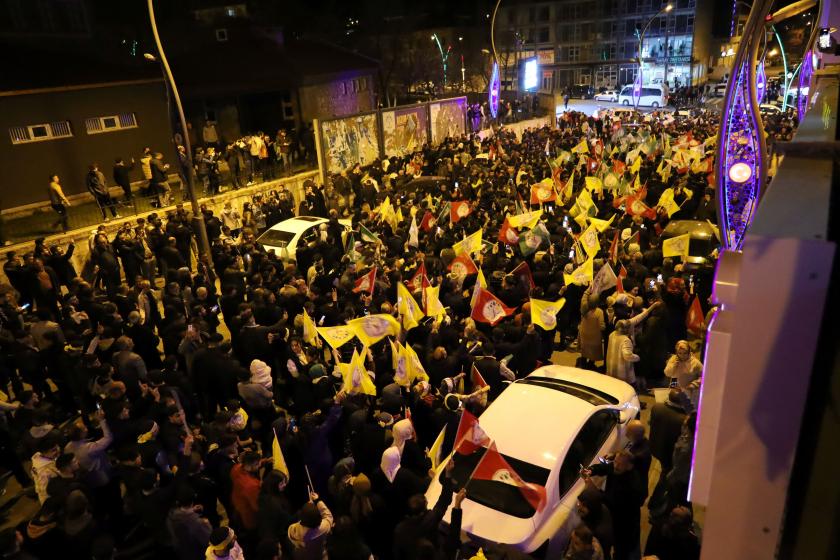
 Bülent Falakaoğlu
Bülent Falakaoğlu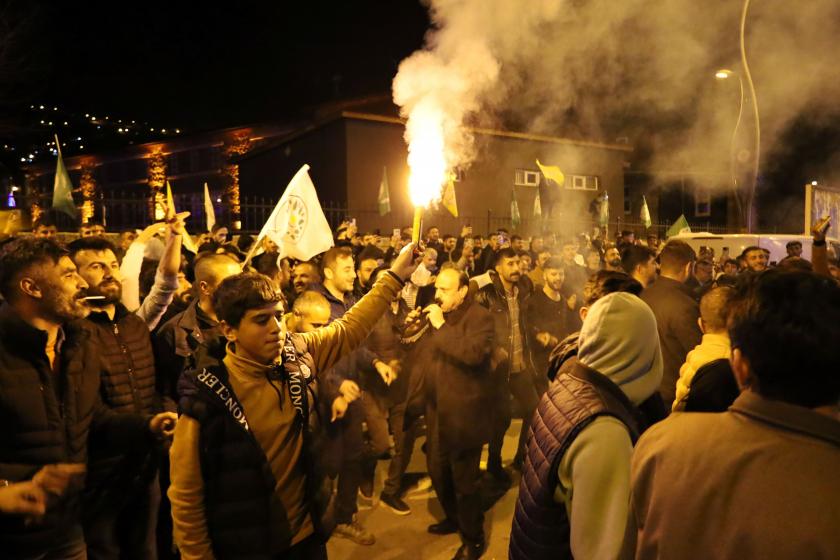
 Hakkı Özdal
Hakkı Özdal